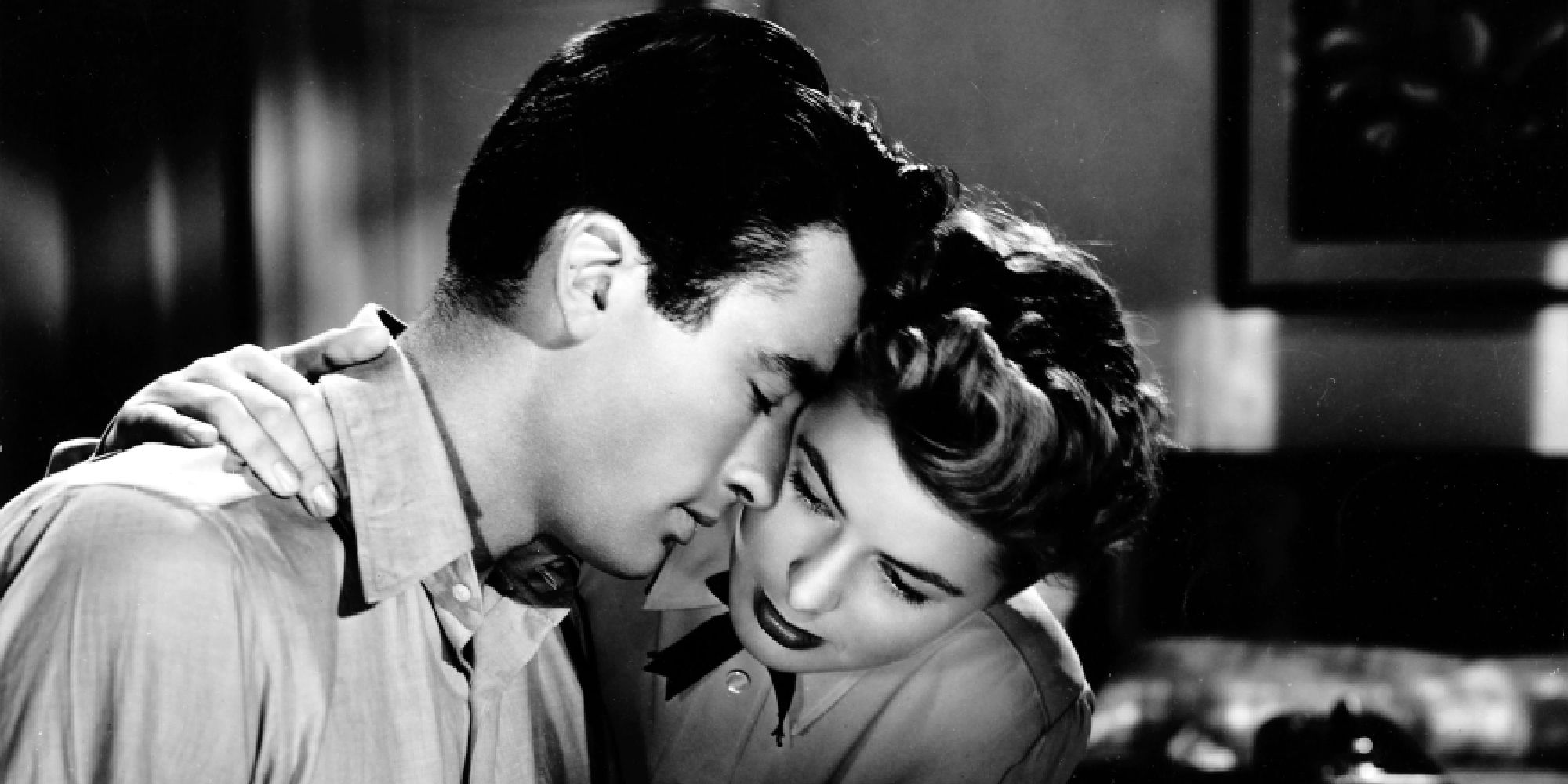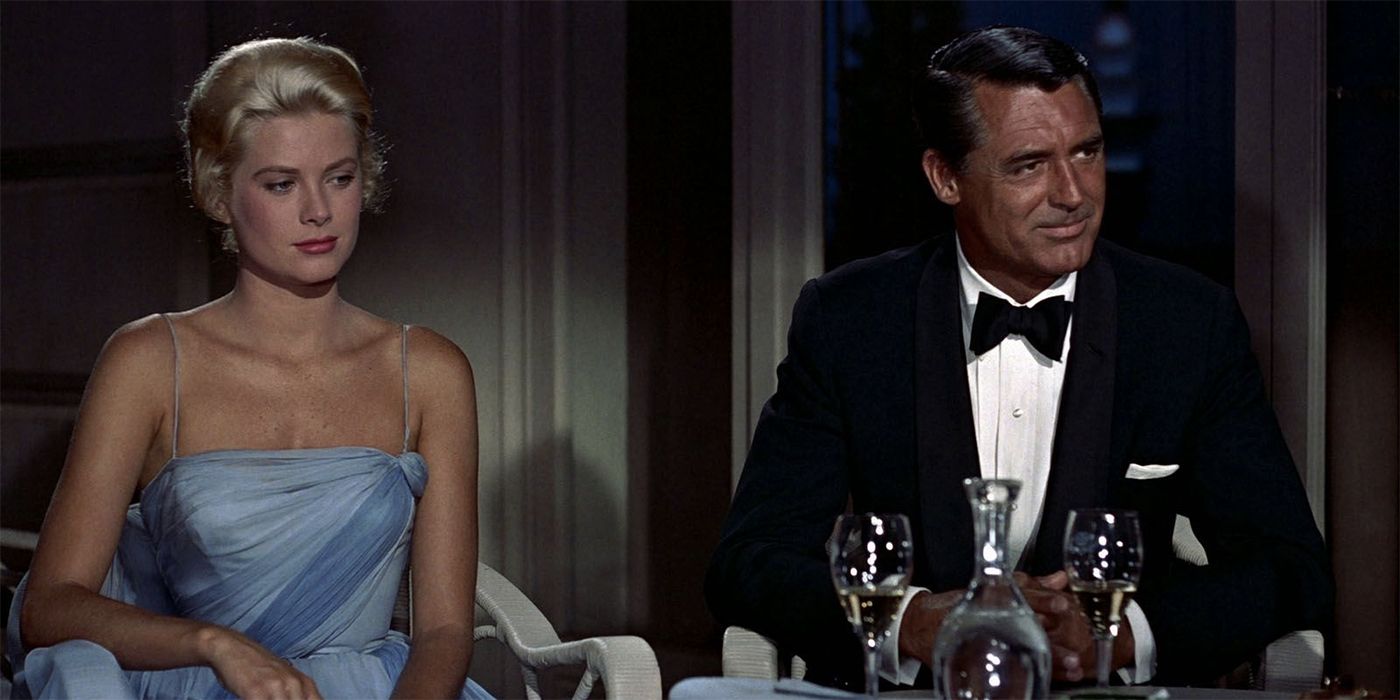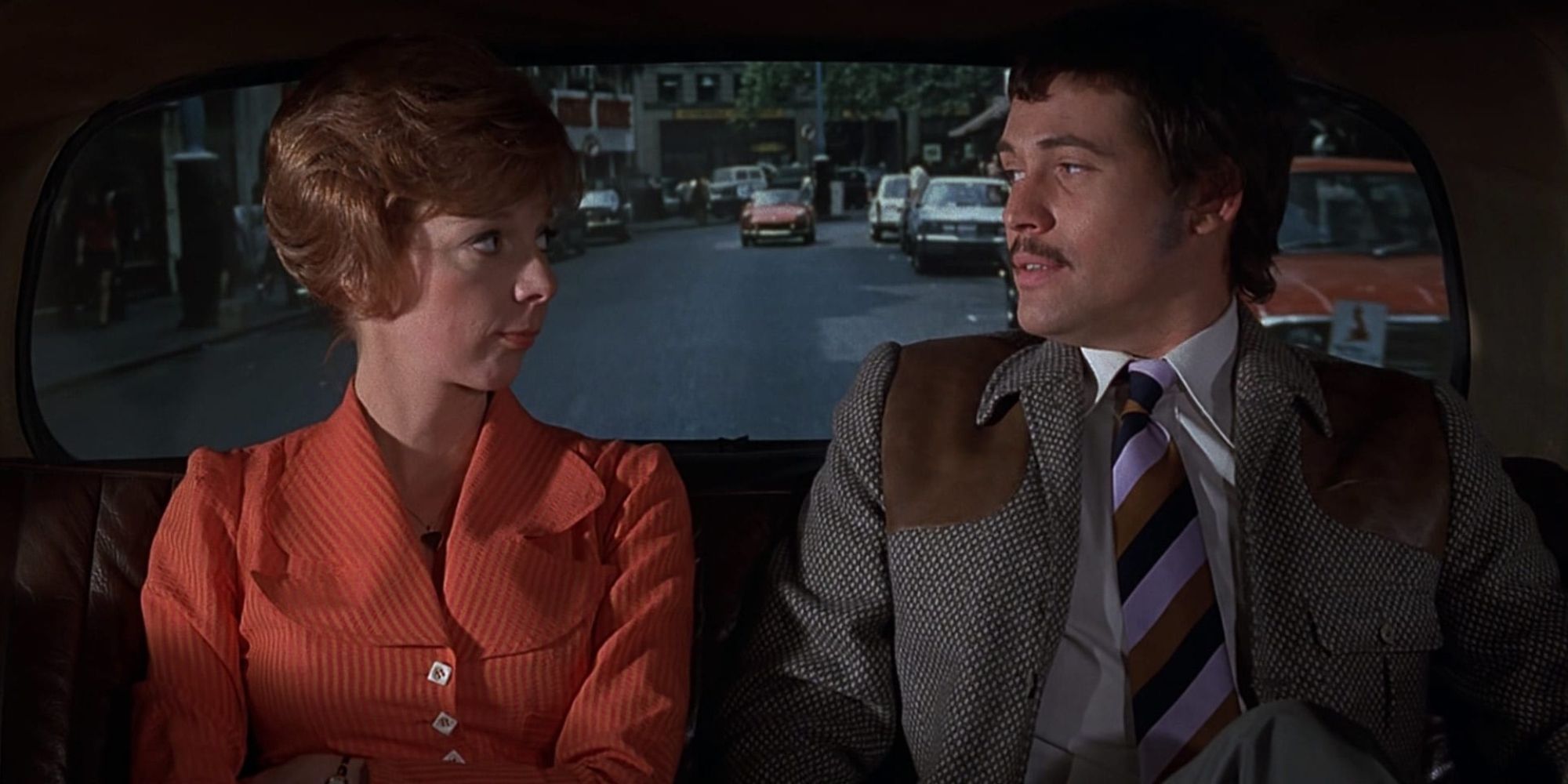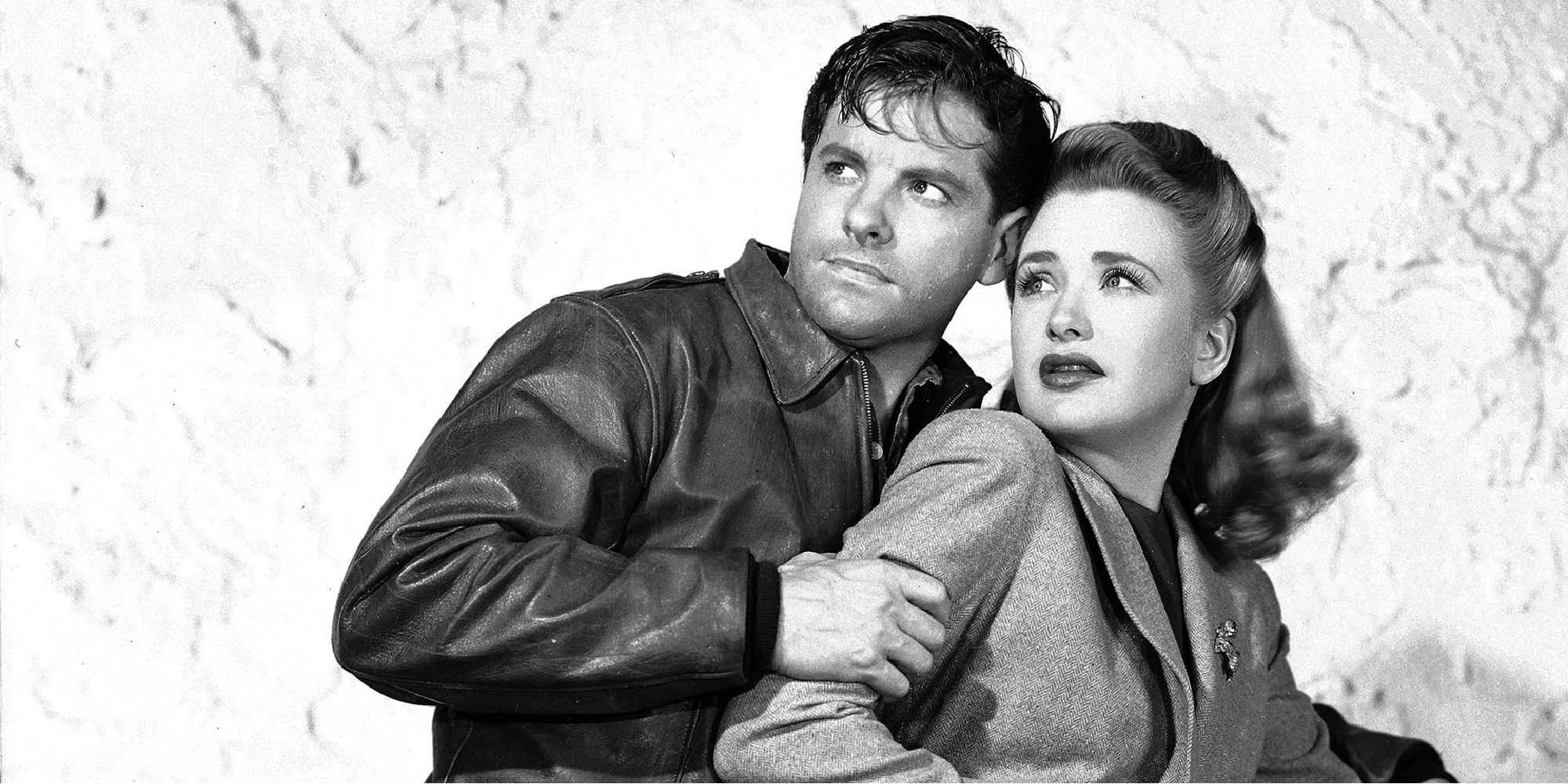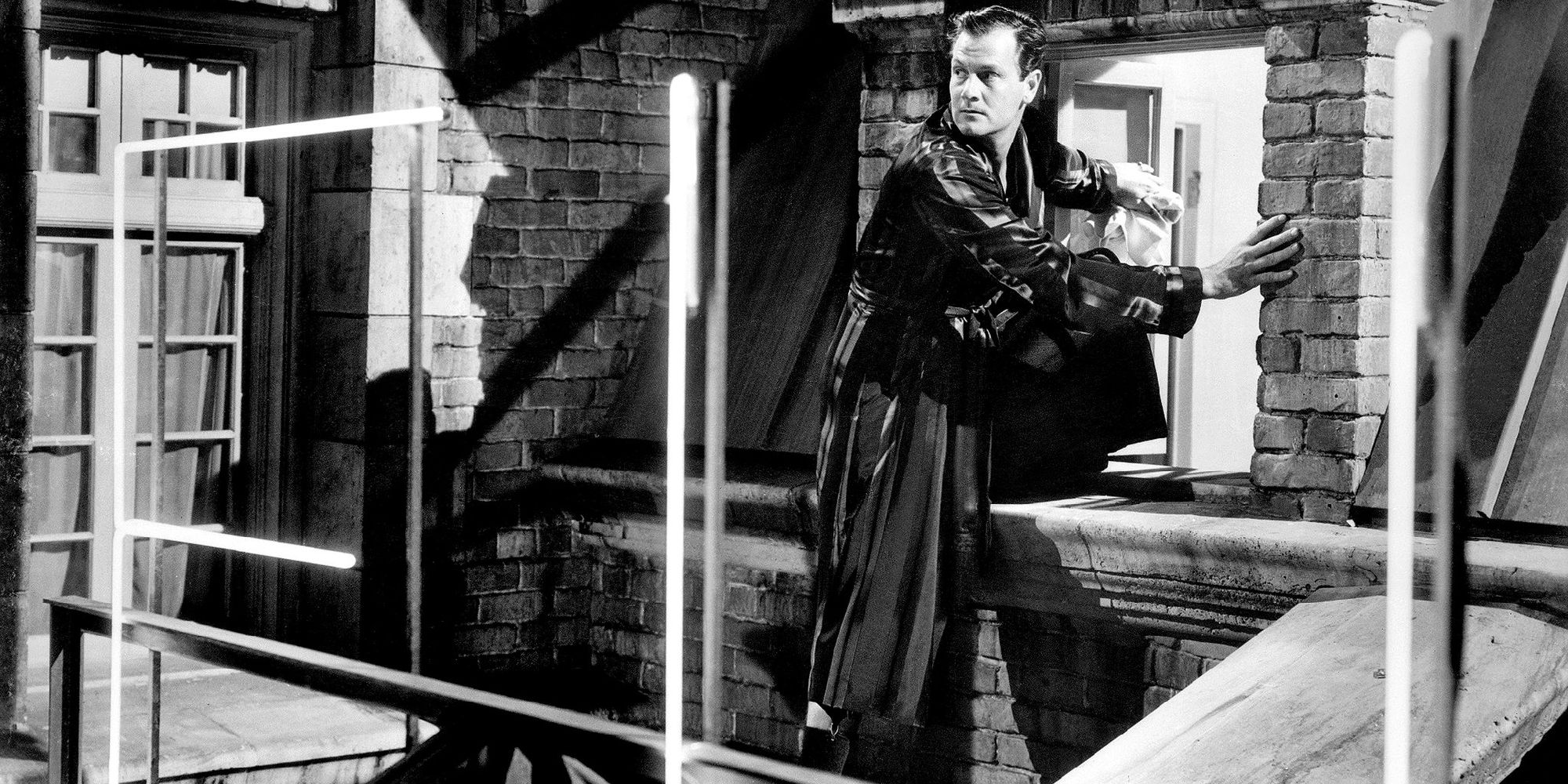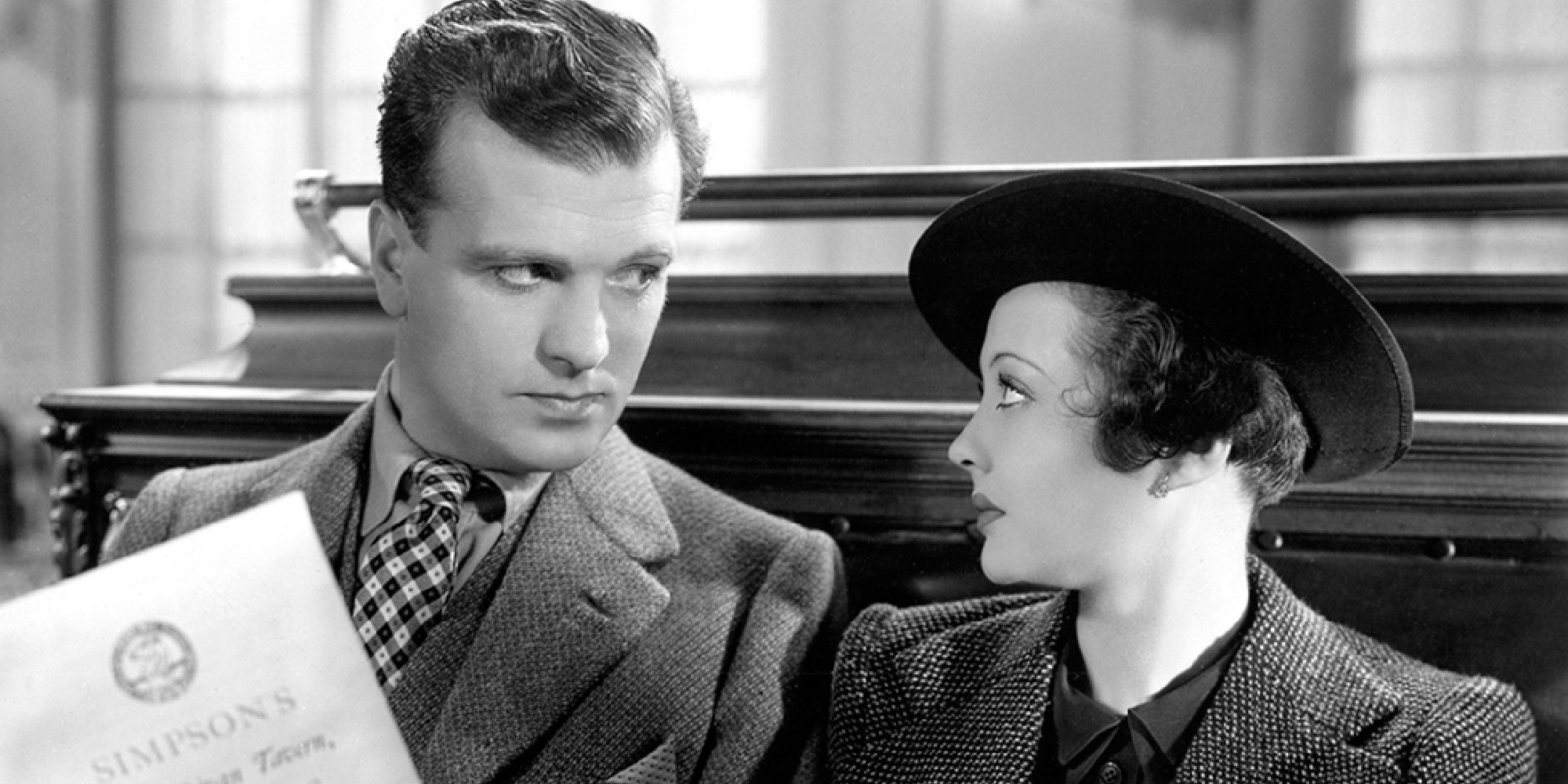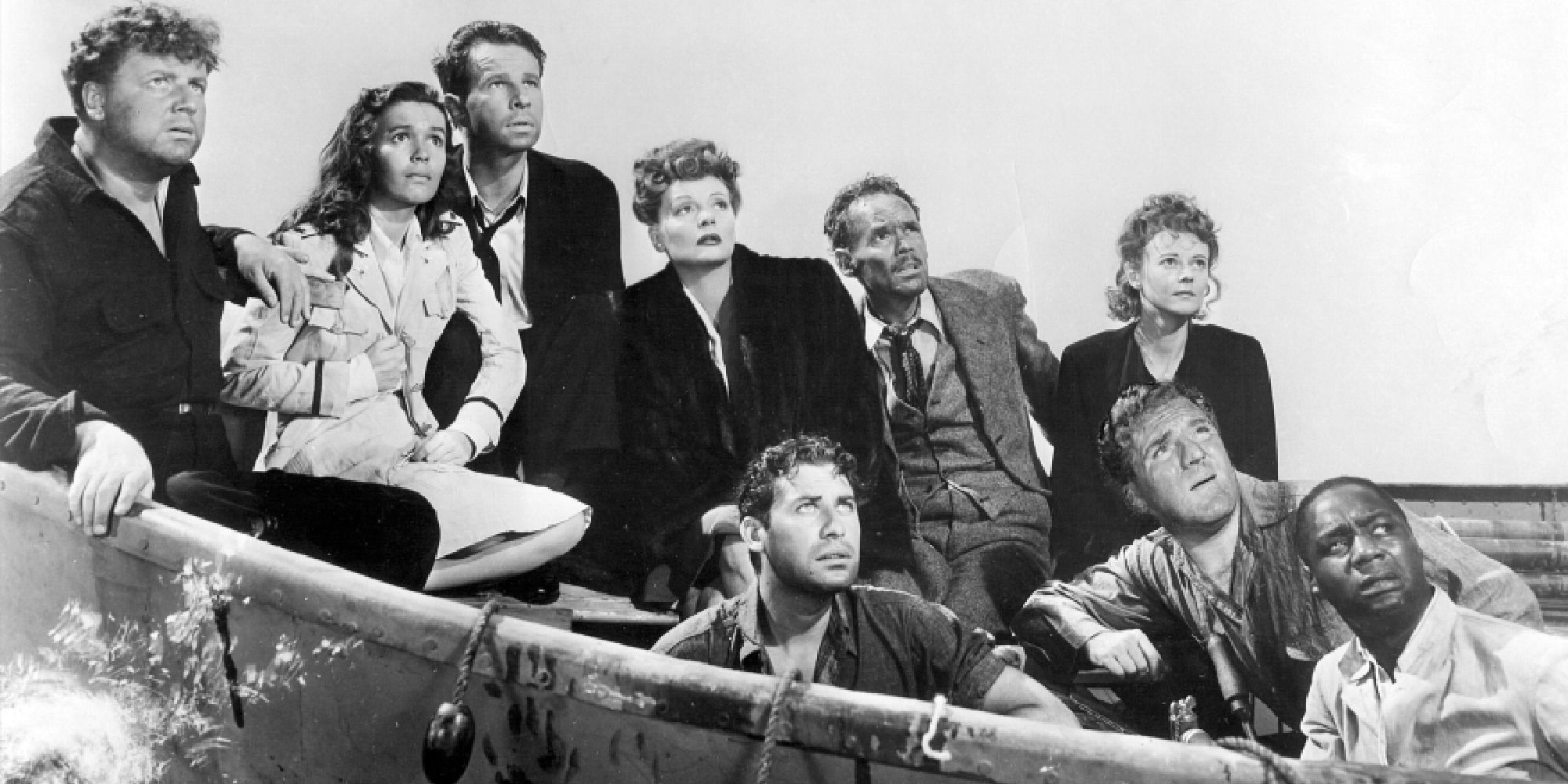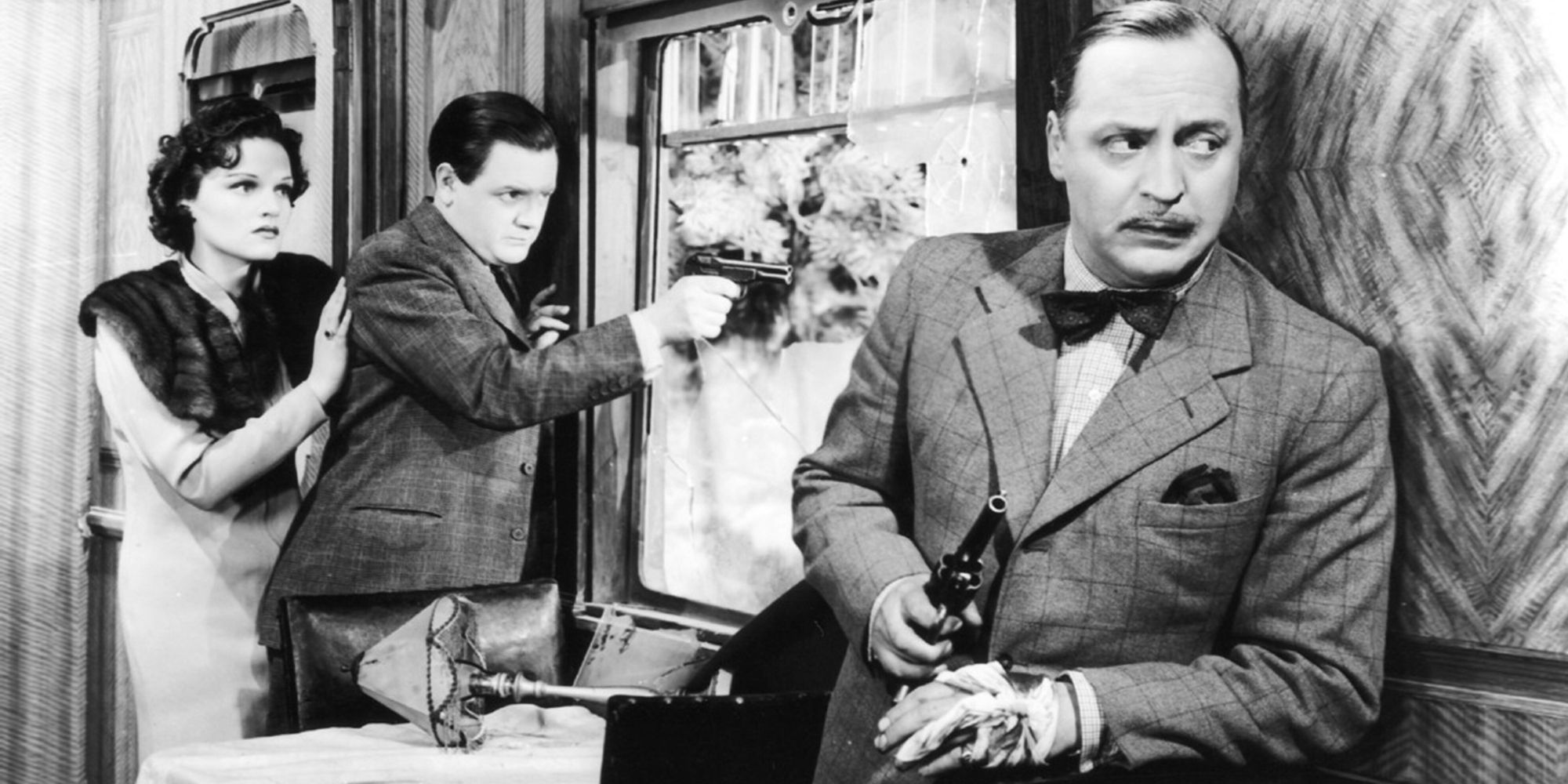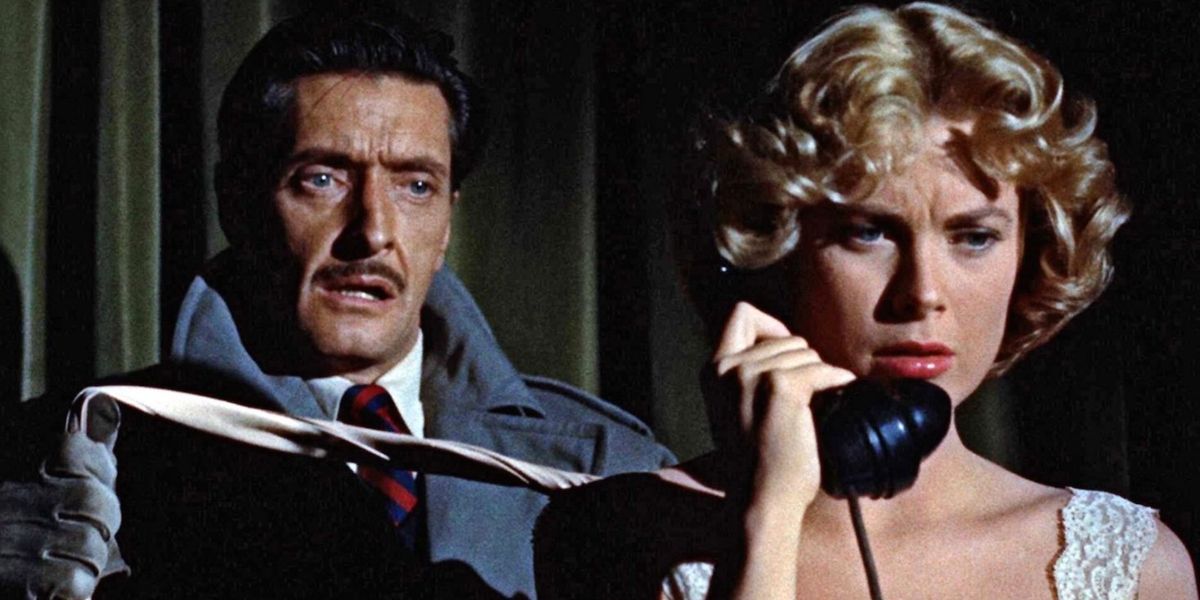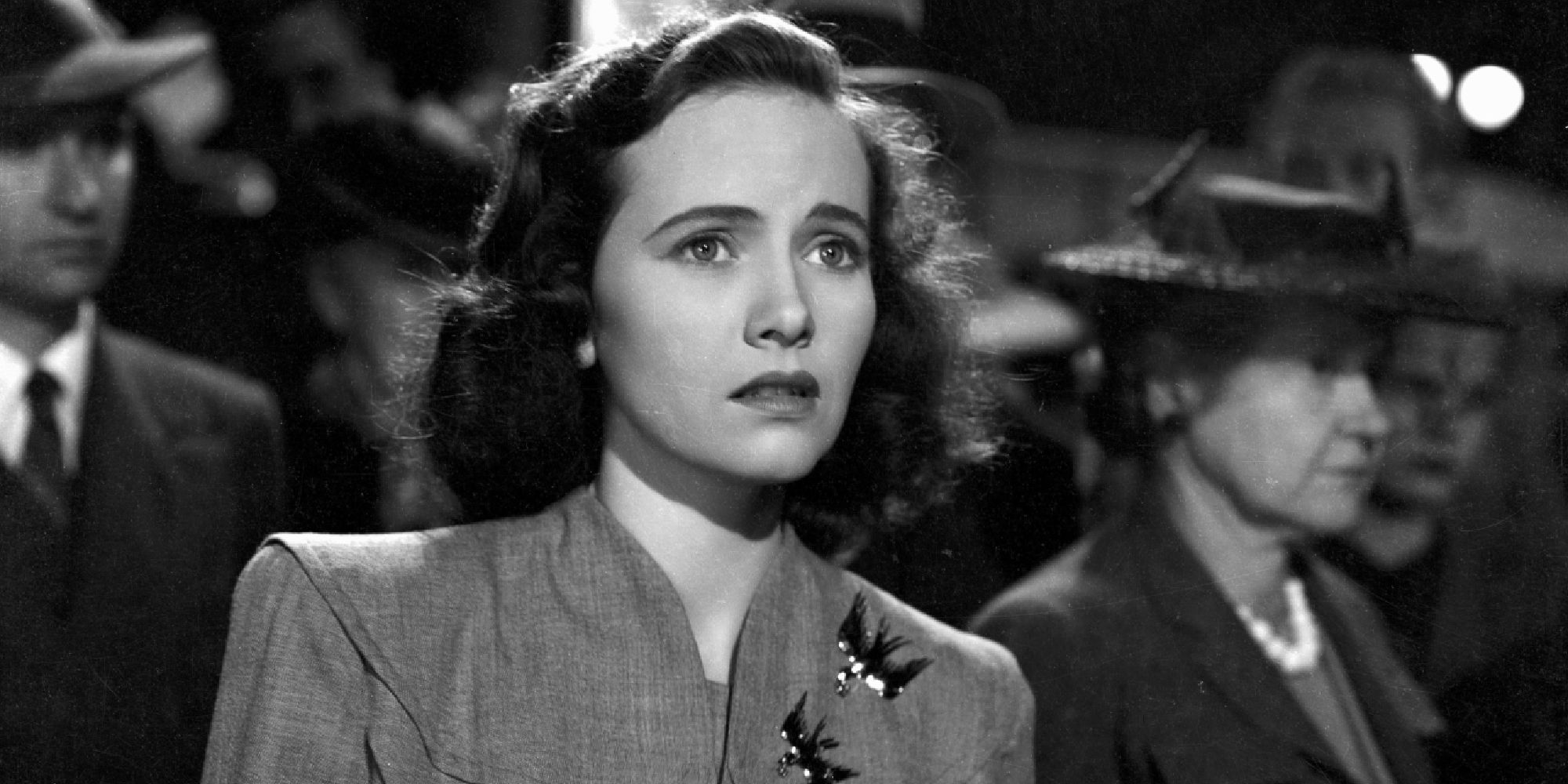Alfred Hitchcock's influence on cinema cannot be denied. His films live on and hold up well, despite the fact Hitchcock himself passed away in 1980, and his final film was released in 1976. Many of his best works don't feel like they live in the past, or merely feel like products of it. The best of his works still feel alive, exciting, and vital, and that's a reason other filmmakers have always been influenced by him, whether it was back when he was alive and making movies, or in the years since 1980.
Even for those not familiar with older cinema, Hitchcock films are worth exploring, simply because the man was so ahead of his time in many ways, and undeniably influential on filmmakers that followed him. As a director, Hitchcock made numerous movies in both the British and American film industries, starting with silent films in the 1920s, and continuing to direct into the 1970s. In total, he made about 60 films, and since the majority of those are worth watching, a ranking proves to be challenging, as there are naturally some omissions. However, for those unfamiliar with Hitchcock, or maybe only aware of his biggest hits, the following are all worth exploring, and collectively deliver hours of suspense, dark comedy, thrills, and intense psychological drama.
30 'Jamaica Inn' (1939)
Starring: Charles Laughton, Maureen O'Hara, Leslie Banks
There were some incredible movies released during 1939, and admittedly, Jamaica Inn isn't up there with the very best. It's commonly regarded as one of Hitchcock's lesser movies, in fact, being an adventure/crime/thriller movie with a slightly odd tone, and also being made shortly before the director started to make a name for himself in America.
It might not represent 1939 or Hitchcock at either's respective best, but it's a movie that's overly criticized sometimes, and is actually pretty decent, all things considered. Charles Laughton hams it up wonderfully in a villainous role, and Jamaica Inn is enough of an oddity to make it strangely engaging throughout much of its runtime.
29 'Family Plot' (1976)
Starring: Karen Black, Bruce Dern, Barbara Harris
Alfred Hitchcock's final film was Family Plot, and it was screened out of competition at the Cannes Film Festival just a few years before the director passed away. It's a fairly convoluted crime/comedy movie, bringing together con artists, kidnappers, and a missing heir into one complex narrative.
It's certainly not the most well-balanced Hitchcock movie out there, but Family Plot has a good deal to offer, as well as boasting some fun performances from a cast that includes Barbara Harris, Bruce Dern, and Karen Black. It also represents Hitchcock going out on his own terms as a filmmaker, being true to his style and favorite tropes/plot beats to the very end of his filmmaking career.
28 'Blackmail' (1929)
Starring: Anny Ondra, John Longden, Cyril Ritchard
The title Blackmail doesn't mess around, because this 1929 movie is straight to the point and indeed about what the title would suggest. It centers on two people who are experiencing their relationship grow apart, and what happens when one of them gets involved with another shady character who could ruin both of their lives.
Created just two years after the advent of sound in cinema, Blackmail is notable for being Alfred Hitchcock's first talkie, after he made a number of silent movies earlier in the 1920s. It's naturally dated and might not hold up to everyone's standards, but those who like very old movies or otherwise want to see Hitchcock experiment with having spoken dialogue for the first time should certainly check it out.
27 'The Ring' (1927)
Starring: Carl Brisson, Lillian Hall-Davis, Ian Hunter
It's not quite up to the standards of something like 1980's Raging Bull by any means, but The Ring is a surprisingly good boxing movie. It also shouldn't be mixed up with a certain American horror movie of the same name, which itself is a remake of a Japanese film, given this was made in 1927, and therefore there weren't any televisions to be crawled out of back then.
The Ring's both a boxing movie and a love triangle drama, centering on two boxers who are rivals in the titular ring, and then find themselves at odds outside the ring too, thanks to both loving the same woman. The Ring is a silent melodrama that remains surprisingly watchable, and like all 1920s Hitchcock movies, it's certainly a historical curiosity for those interested.
26 'I Confess' (1953)
Starring: Montgomery Clift, Anne Baxter, Karl Malden
The director had an amazing run throughout much of the 1950s, to the point where rock-solid movies like I Confess often get overlooked, simply because Alfred Hitchcock's best movies from this time were even better. It's a movie about a priest becoming a murder suspect, though he struggles with knowing the truth of whom the killer is while feeling unable to say anything because he heard it from someone's confession.
There's a good deal of drama that comes from the question of whether or not to break the seal of the confessional, with Montgomery Clift giving a great performance as the conflicted priest. It's a compelling "wrong man" style narrative, which was one that Hitchcock loved to explore and revisit throughout many of his films.
25 'The Man Who Knew Too Much' (1934)
Starring: Leslie Banks, Edna Best, Peter Lorre
Interestingly, The Man Who Knew Too Much is a rare film that got remade by its own director. Hitchcock was behind both the 1934 version and the more well-known 1956 version, with both following the same core premise of a married couple dealing with their daughter getting kidnapped after they accidentally learn about an upcoming assassination attempt.
As far as Hitchcock's earlier, pre-Hollywood movies go, The Man Who Knew Too Much is up there as one that most reflects where his career would go during the 1950s and 60s; arguably his "golden" era. For that reason, it's valuable, and even if the 1956 version is more polished, the 1934 version deserves recognition for doing it first.
24 'The Lodger: A Story of the London Fog' (1927)
Starring: Marie Ault, Arthur Chesney, June Tripp
Many of Alfred Hitchcock's earliest movies are fascinating to view from a historical perspective - especially for his diehard fans - but don't always hold up so well when it comes to entertainment value. In that way, The Lodger: A Story of the London Fog stands out, because it holds up well for a silent movie.
It revolves around a serial killer terrorizing London, and a landlady suspecting her new lodger of being the killer, due to his strange behavior and resemblance to how the suspect allegedly appears. The Lodger: A Story of the London Fog is a solidly done for a movie of its time, moves pretty well throughout its brisk runtime, and benefits from some neat, atmospheric visuals throughout.
23 'The Trouble with Harry' (1955)
Starring: Edmund Gwenn, John Forsythe, Shirley MacLaine
Hitchcock was no stranger to putting comedic moments in the majority of his movies (even if it was often very dark humor), but it was less common to see him make an outright comedy. That makes The Trouble with Harry stand out, as it's likely his best-known movie that's frequently light-hearted enough to easily fit into the comedy genre.
The premise, however, sounds surprisingly dark, as it's about how a town reacts to a mysterious death, where no one's quite sure what the cause was, and a few different people may be suspects. Yet it plays this narrative for laughs more than drama, and ends up being a fairly entertaining Hitchcock movie, and also proves memorable for being Shirley MacLaine's feature debut.
The Trouble with Harry
- Release Date
- October 3, 1955
- Director
- Alfred Hitchcock
- Cast
- Edmund Gwenn , John Forsythe , Mildred Natwick , Mildred Dunnock , Jerry Mathers , Royal Dano
- Runtime
- 99
22 'The Wrong Man' (1956)
Starring: Henry Fonda, Vera Miles
There are many movies in Alfred Hitchcock's filmography that could be called "The Wrong Man," as 1956's The Wrong Man is far from the only Hitchcock movie to center around a protagonist getting wrongly accused of something. It's a trope he helped popularize, and as such, has influenced other directors of crime and thriller movies.
The Wrong Man is not Hitchcock's best "wrongly accused man" film, but it is a pretty good one. It benefits a good deal from having the great Henry Fonda in the titular role, and viewers who like to find cameos (beyond Hitchcock's) might want to look out for future stars Harry Dean Stanton and Tuesday Weld surprisingly appearing in uncredited roles.
21 'Marnie' (1964)
Starring: Tippi Hedren, Sean Connery, Diane Baker
The spectre of James Bond hangs over much of Sean Connery's filmography, but the legendary actor was in plenty of memorable movies that didn't involve 007. One of those was 1964's Marnie, which he starred in with Tippi Hedren, who had just worked with Hitchcock the previous year on a movie about animals fighting back against humans (more on that one later).
The two play individuals who end up having a very strange and twisted dynamic, after Connery's character blackmails Hedren's, who's a compulsive thief. Marnie has some uncomfortable content, but it is well-made and well-acted, and a very faint silver lining may be that most of the film's most disturbing aspects are implied, rather than shown explicitly on screen... though the story and themes remain undeniably dark.
20 'Spellbound' (1945)
Starring: Ingrid Bergman, Gregory Peck
There were a number of Hitchcock thrillers released in the 1940s that all have black-and-white visuals and one-word titles. As such, they can be a little easy to get mixed up and/or overlooked. But fans owe it to themselves to be diligent and familiarize themselves with Hitchcock's first decade in Hollywood, because he released some true gems in the 40s.
Spellbound is one of those, and stands as a little underrated, all things considered. It's a twisty and suspenseful romance/thriller movie that focuses on one character helping another with his amnesia, and features two of Classic Hollywood's biggest stars in the lead roles: Ingrid Bergman and Gregory Peck.
19 'To Catch a Thief' (1955)
Starring: Cary Grant, Grace Kelly, Jessie Royce Landis
To Catch a Thief features two actors (Cary Grant and Grace Kelly) better known for more famous Hitchcock movies, though this 1955 one is still good. It's a slightly more light-hearted crime and thriller film than Hitchcock usually did, with a plot about an ex-burglar trying to track down a copycat, seeing as he doesn't want to be arrested for these new crimes.
It provides decent entertainment and charismatic lead performances, but the most eye-catching part about To Catch a Thief is its visuals. It's set on the French Riviera, and is all beautifully captured by cinematographer Robert Burks, who won an Academy Award for his work on this film.
18 'Frenzy' (1972)
Starring: Jon Finch, Alec McCowen, Barry Foster
Though it was one of his final movies, Frenzy ultimately proved that even after turning 70, Alfred Hitchcock hadn't lost his edge. It's easily one of Hitchcock's most disturbing movies, if not his most disturbing, and follows a man getting falsely accused of committing a series of grisly murders: all strangulations committed with a necktie.
If anything, the dark comedy of Frenzy just works to make the whole thing feel even more twisted, and as Hitchcock wasn't dealing with any censorship (like he had in America with the Hays Code), he was able to make Frenzy surprisingly graphic. It might not shock modern-day viewers as much as audiences in 1972, but it's easy to imagine viewers over half a century ago being very alarmed while witnessing what this movie shows.
17 'Saboteur' (1942)
Starring: Priscilla Lane, Robert Cummings, Norman Lloyd
Another day, another Alfred Hitchcock movie with a main character getting falsely accused. Here, in 1942's Saboteur, the unlucky protagonist is an aircraft factory worker, and he's forced to go on the run after he's blamed for causing a large fire that also killed his closest friend.
As is usually the case, it becomes about more than just running away from accusers, as the man who's been blamed also sets out to prove his innocence along the way. It's a formula Hitchcock arguably hadn't quite perfected until the 1950s, but here in 1942, he still does it very well, and it can be seen as a trial run for later films, particularly North by Northwest.
16 'Foreign Correspondent' (1940)
Starring: Joel McCrea, Laraine Day, Herbert Marshall
Foreign Correspondent was one of the first American movies Alfred Hitchcock directed, though it being set in Europe gives it the feeling of bridging the gap between Hitchcock's pre-Hollywood career and his Hollywood one. Its story revolves around the start of World War Two, with a story about an American journalist trying to expose enemy spies.
WW2-related movies made while the war was ongoing are always interesting to watch from a historical perspective. However, Foreign Correspondent thankfully isn't just for history buffs, as it's also got an entertaining story and an engaging blend of mystery, thrills, and action within its war-centered story.
15 'Sabotage' (1936)
Starring: Sylvia Sidney, Oskar Homolka, John Loder
Not to be mixed up with 1942's Saboteur, 1936's Sabotage is a fairly different film, and one of the best that Hitchcock made before going to Hollywood. It focuses on a married couple who find their marriage tested after the wife discovers that her husband may be involved in a potentially deadly (and explosive) terrorist plot.
It's very hard to discuss what makes Sabotage memorable without ruining its most iconic scene. And yes, it is 87 years old, so spoiler warnings likely don't apply anymore, but the film contains a genuinely surprising sequence that shouldn't be given away (and also one that Hitchcock himself surprisingly regretted), especially since it still packs a punch after all these years.
14 'Lifeboat' (1944)
Starring: Tallulah Bankhead, William Bendix, Walter Slezak
There's always something thrilling about movies with limited locations, and within this sub-genre of thrillers, Lifeboat stands out. Befitting its title, it's a movie that takes place primarily on a lifeboat, with a group of survivors forced to stay on one for an extended period after their ship is attacked by a German U-boat.
The movie is remarkably simple, because it really does become a survival story with a very limited space in which its characters are trying to survive. This might limit the film in the hands of a lesser director, but Hitchcock is able to get a great deal of suspense and thrills out of it, making Lifeboat a surprisingly entertaining movie from start to finish.
13 'The Lady Vanishes' (1938)
Starring: Margaret Lockwood, Michael Redgrave, Paul Lukas
Naturally, Alfred Hitchcock's American movies tend to get a little more recognition than his British films. They had larger budgets, bigger stars, and were released in the second half of Hitchcock's overall filming career, meaning many of them are examples of what he could do - as a director - at the height of his powers.
Yet there are, of course, acclaimed non-Hollywood Hitchcock pictures, and 1938's The Lady Vanishes - one of his last non-Hollywood efforts - is rightly regarded as a classic. It has an intriguing premise involving a young woman investigating the strange disappearance of an older woman while on a train, and as a later 1951 film will clearly demonstrate, this was not the last time Hitchcock made a great movie involving characters on trains.
12 'Dial M for Murder' (1954)
Starring: Ray Milland, Grace Kelly, Robert Cummings
There were two very good Alfred Hitchcock thrillers starring Grace Kelly released in 1954, with Dial M for Murder inevitably placing second. That being said, it's still an incredibly compelling film, following a man who attempts to have his wife murdered, only to change his plans when the initial murder attempt is unsuccessful.
Dial M for Murder is a very straightforward thriller, but Hitchcock injects it with so much style, class, and suspense that any trepidations about its simplicity fall by the wayside. It's a great example of how to execute a clean and efficient suspenseful movie, and even if it's just a hair away from ranking as one of the director's very best movies, it's still overall incredibly well-made.
11 'Shadow of a Doubt' (1943)
Starring: Teresa Wright, Joseph Cotten, Macdonald Carey
Shadow of a Doubt was the movie that Hitchcock viewed most favorably out of all the movies he directed. Make no mistake; it's a very good film, but it's the kind of pick as "the best Hitchcock film" that not many people would select... besides the man himself, it seems.
The plot centers on a family who welcomes a long-lost uncle to their home in a small town, only for one of the family members to become suspicious about the man, and believe he's not who he says he is. It's a slow-burn thriller about identity and family that moves well and is engaging throughout, and though not everyone will agree with Hitchcock that it's his very best, it's still more than worthy of watching in any event.


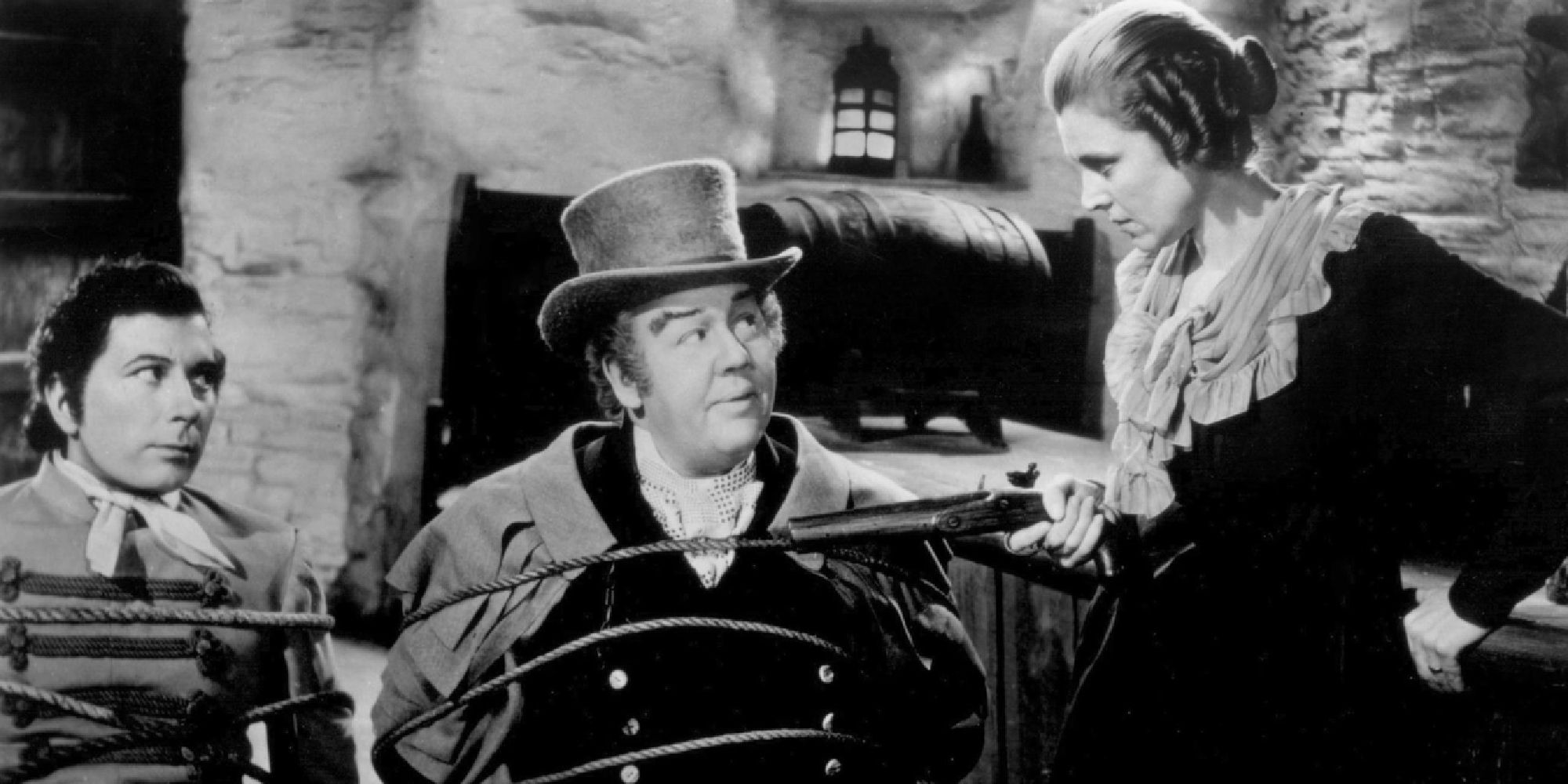
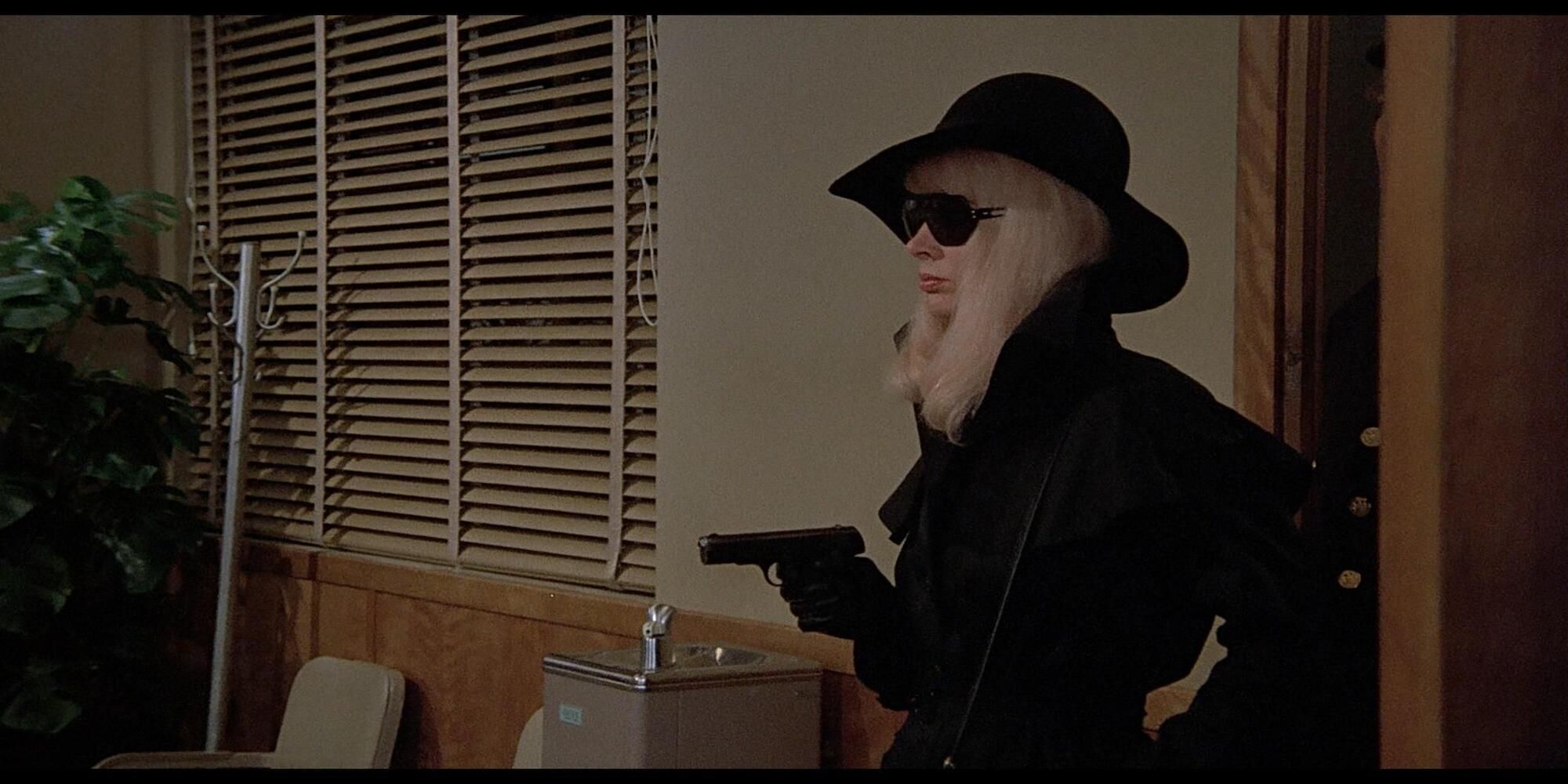
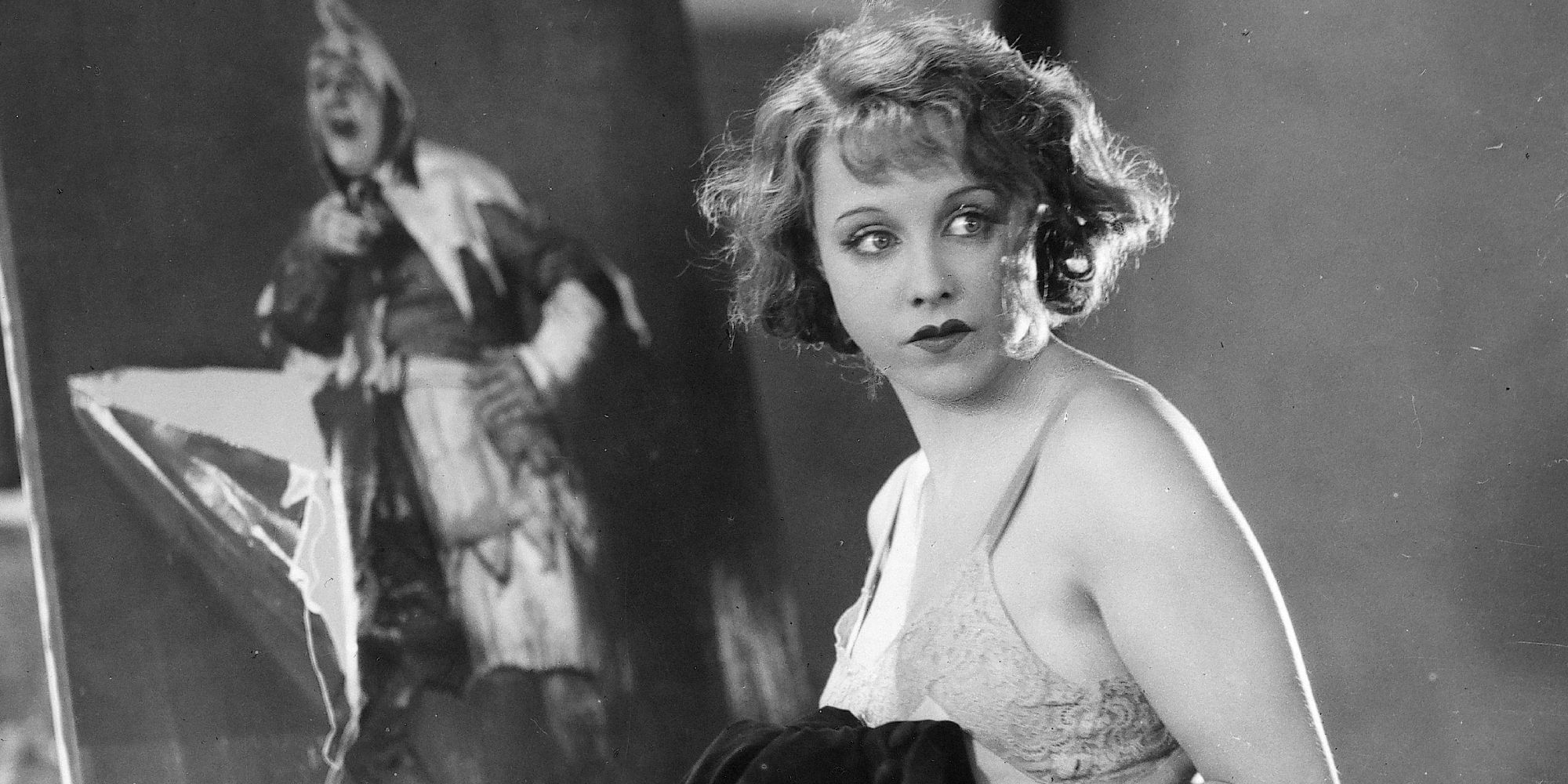
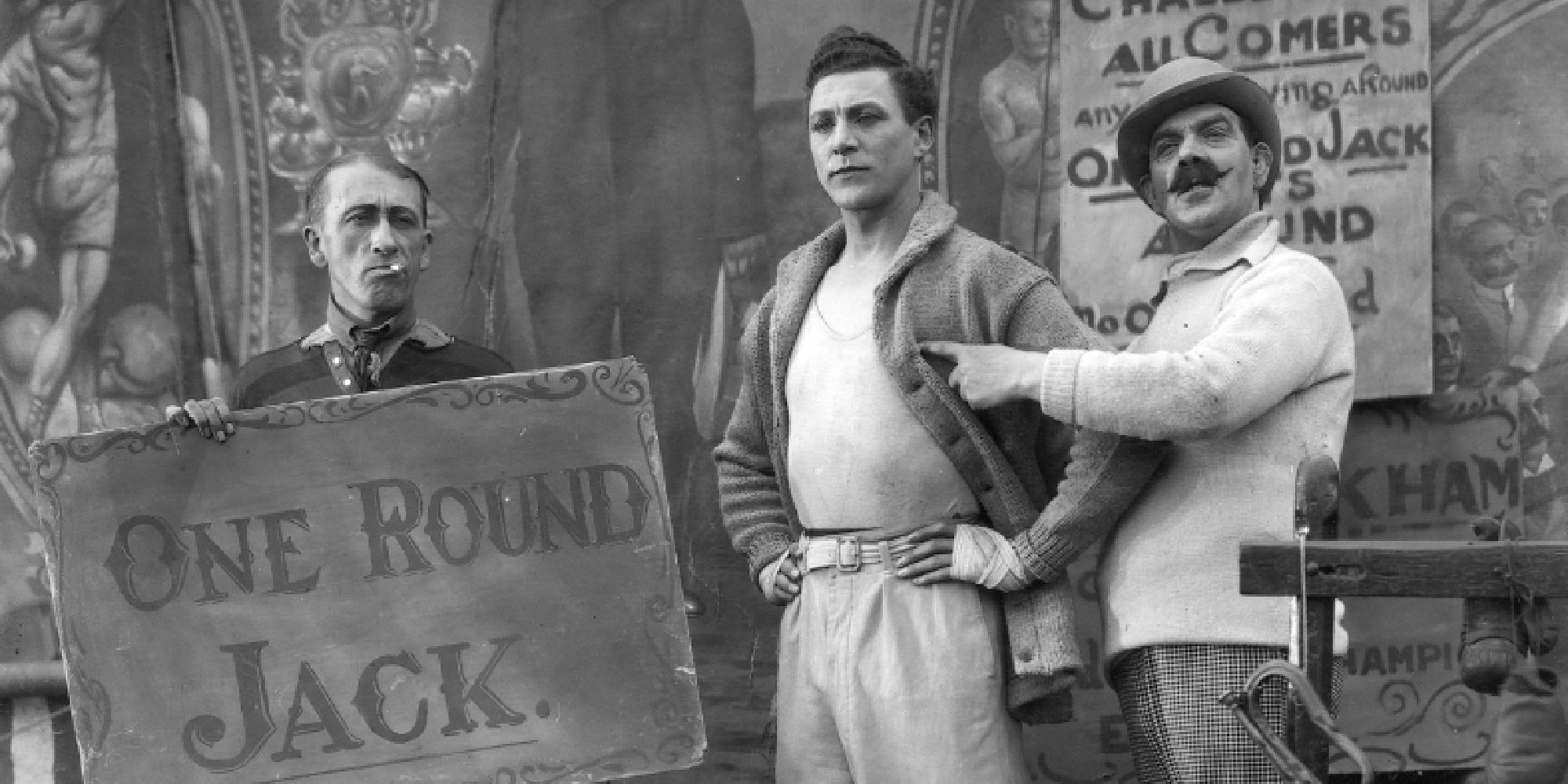
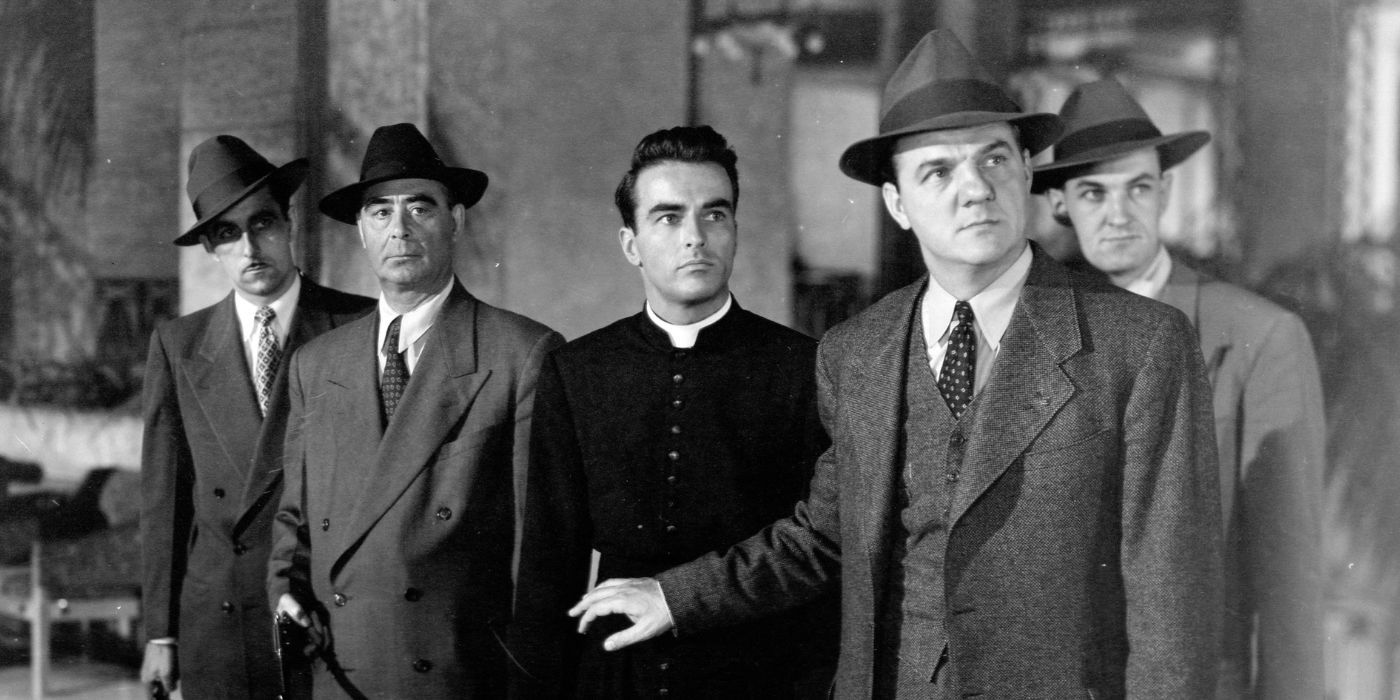
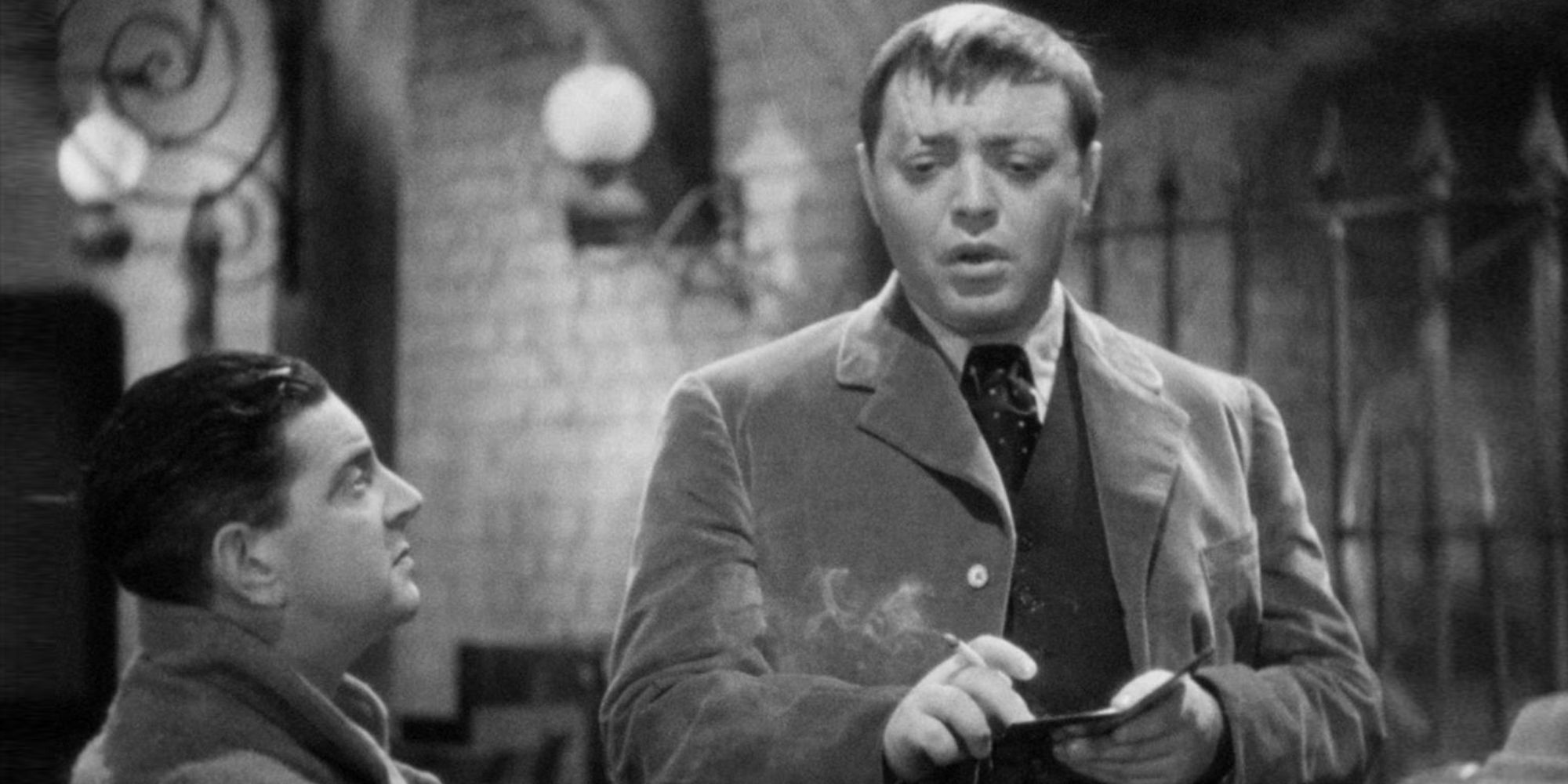
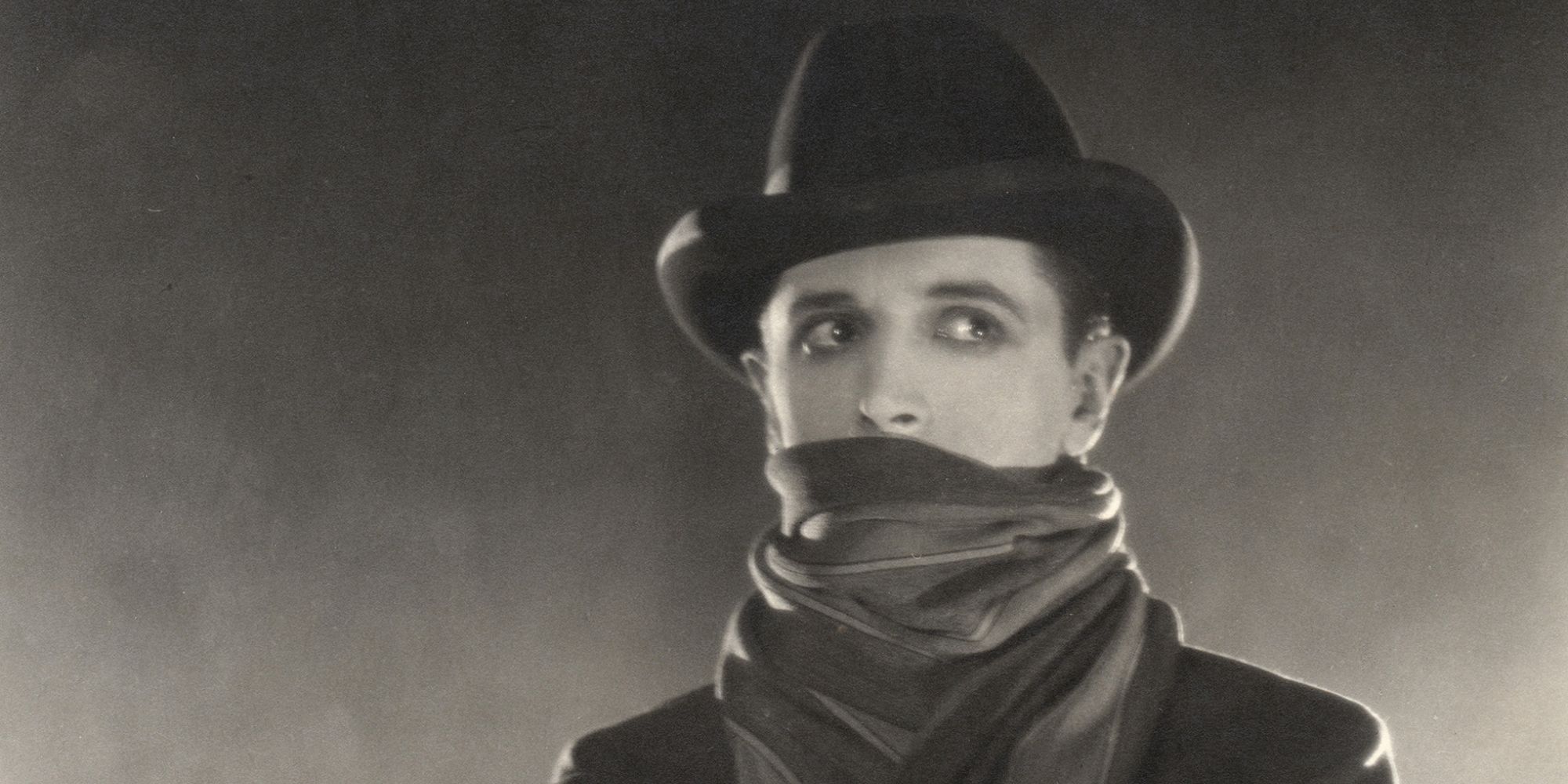
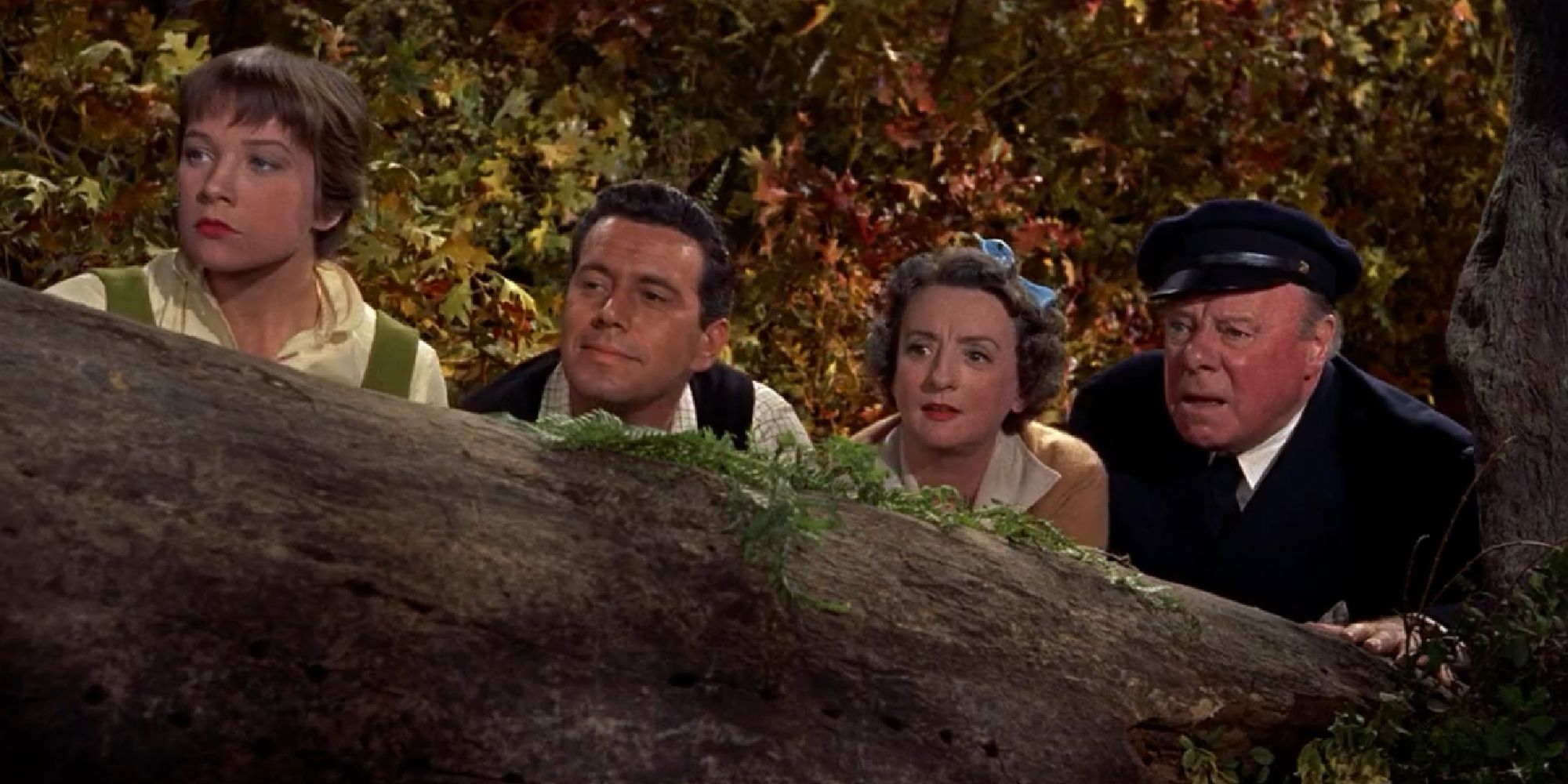
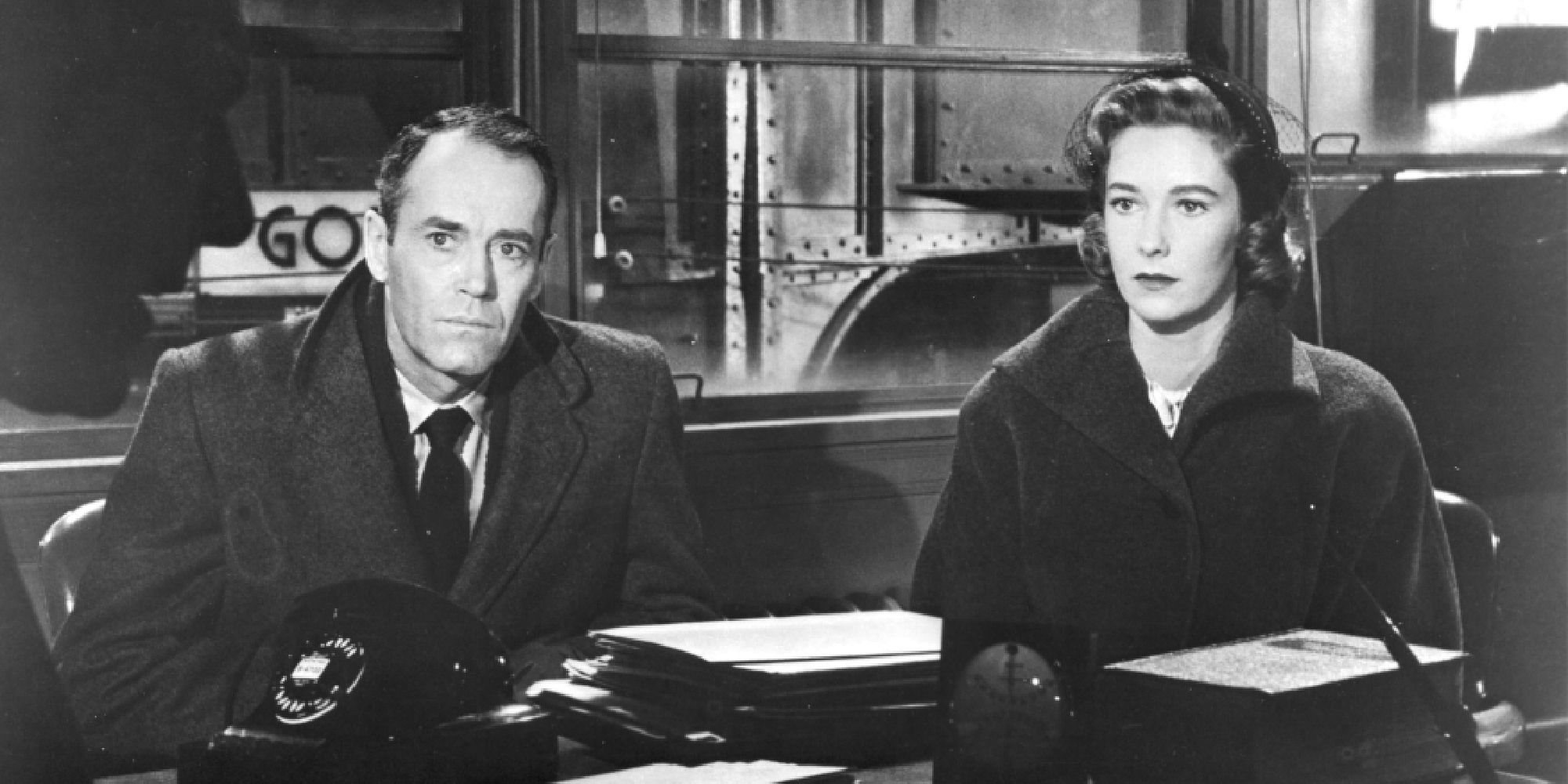
.jpg)
